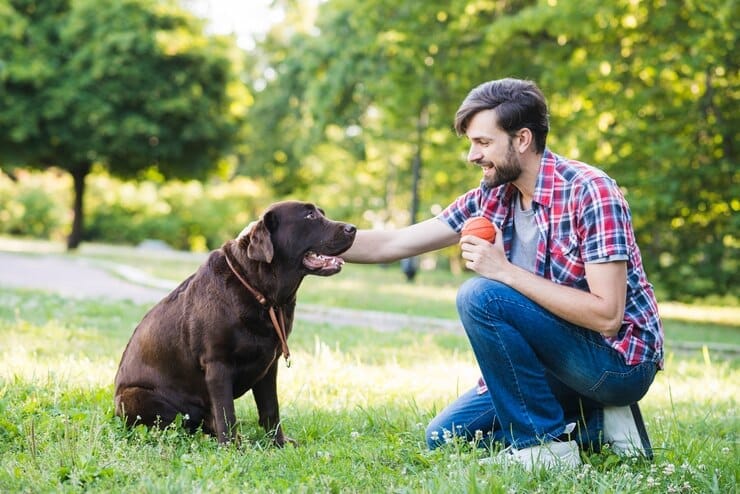Proper hydration is crucial for the overall health and well-being of puppies. As a responsible pet owner, it is important to understand the importance of ensuring that your puppy has an adequate water intake. This article explores the topic of how much water a puppy should drink and provides valuable information to help you keep your furry friend hydrated.
Why is Proper Hydration Important for Puppies?
Proper hydration plays a vital role in maintaining a puppy's overall health. Water is essential for various bodily functions, including temperature regulation, digestion, circulation, and waste elimination. It helps keep your puppy's joints lubricated, supports brain function, and aids in the development of healthy skin and coat. Adequate hydration is especially important for puppies as they have higher water requirements due to their active growth phase.
How Much Water Does a Puppy Need?
The water intake of a puppy can vary depending on factors such as age, size, activity level, and the climate they live in. On average, puppies need about 1/2 to 1 ounce of water per pound of body weight each day. For example, a 10-pound puppy may require 5 to 10 ounces of water daily. However, it's important to note that individual needs can vary, and it is essential to monitor your puppy's water intake and adjust accordingly.
Factors Influencing a Puppy's Water Intake
Various factors can influence a puppy's water intake. For instance, puppies who are more active, spend time outdoors, or live in hot and humid climates may require more water to stay properly hydrated. puppies that consume dry kibble will need more water compared to those on wet or raw diets, as the moisture content in their food is lower.
Signs of Dehydration in Puppies
Dehydration can have serious consequences for puppies. It is important to be aware of the signs of dehydration, which may include dry or sticky gums, loss of skin elasticity, sunken eyes, excessive panting, lethargy, and dark yellow urine. If you notice any of these signs, it is essential to take prompt action to rehydrate your puppy.
How to Check for Dehydration in Puppies?
You can check for dehydration in puppies by gently lifting the skin on the back of their neck. If the skin springs back into place quickly, it indicates proper hydration. However, if the skin takes longer to return to its original position or remains tented, it could be a sign of dehydration, and veterinary attention should be sought.

How to Ensure Your Puppy is Drinking Enough Water?
To ensure that your puppy is drinking enough water, several measures can be taken. Providing clean and fresh water at all times is crucial. Monitoring your puppy's water intake and refilling the bowl as needed is important, especially during hot weather or after physical activity. Incorporating wet food into your puppy's diet or using water additives can help increase their overall fluid intake.
Common Mistakes to Avoid When It Comes to Puppy Hydration
There are common mistakes that should be avoided when it comes to puppy hydration. These include using unsanitary water bowls, providing insufficient access to water, not monitoring water intake, and relying solely on dry kibble as a water source. Being aware of these mistakes can help ensure that your puppy remains properly hydrated.
How to Introduce Water to a Puppy?
Introducing water to a puppy should be a gradual process. It is generally recommended to provide water to puppies as early as three to four weeks old. Initially, water can be offered in shallow bowls, and it can be helpful to dip your puppy's nose in the water to encourage them to drink. Over time, your puppy will learn to drink from the water bowl independently.
When to Be Concerned About a Puppy's Water Intake?
If you notice a significant decrease in your puppy's water intake or if they are consistently refusing to drink water, it may be a cause for concern. It is important to monitor your puppy's behavior closely and consult a veterinarian if you have any concerns about their hydration levels.
How to Encourage Proper Hydration in Puppies?
There are several ways to encourage proper hydration in puppies. Firstly, providing clean and fresh water in easily accessible bowls is essential. Monitoring your puppy's water intake and offering water at regular intervals can ensure they stay hydrated. Incorporating wet food into their diet and considering water additives for picky drinkers can also be helpful strategies.
By following these guidelines and being mindful of your puppy's hydration needs, you can help ensure that they stay properly hydrated and maintain their overall health and well-being.
Why is Proper Hydration Important for Puppies?
Proper hydration is crucial for puppies because it supports their overall health and well-being. Adequate water intake is essential for the development and growth of puppies. It helps in the formation of healthy bones, muscles, and organs. Additionally, puppies are more susceptible to heatstroke due to their limited ability to regulate body temperature effectively. Sufficient water consumption helps them stay cool and prevents overheating.
Water also plays a significant role in digestion by facilitating the breakdown of food and absorption of nutrients in puppies. It aids in preventing constipation and ensures healthy bowel movements. Moreover, proper hydration is vital for the optimal functioning of the kidneys in puppies. It helps in flushing out waste products and toxins, ensuring proper filtration of blood and overall kidney health.
Ensuring that puppies have access to clean and fresh water throughout the day is crucial to prevent dehydration. Puppies are at a higher risk of dehydration due to their smaller bodies and higher activity levels. Being hydrated also contributes to their energy levels, enabling them to engage in playful activities. Lack of water can lead to fatigue and decreased activity.
Veterinarians generally recommend that puppies drink around 1/2 to 1 ounce of water per pound of body weight each day. However, specific water requirements may vary based on breed, size, activity level, and environmental conditions. It is essential to closely monitor their water intake and watch for signs of dehydration, such as dry gums or lethargy, in order to maintain their health and well-being.
How Much Water Does a Puppy Need?
When it comes to our adorable fur babies, one of the key factors in their overall health is ensuring they stay hydrated. In this section, we'll dive into the topic of how much water a puppy needs. We'll explore the various factors that can influence their water intake, keeping in mind the importance of understanding their unique needs. So, let's quench our thirst for knowledge and find out just how much water our playful puppies should be drinking!
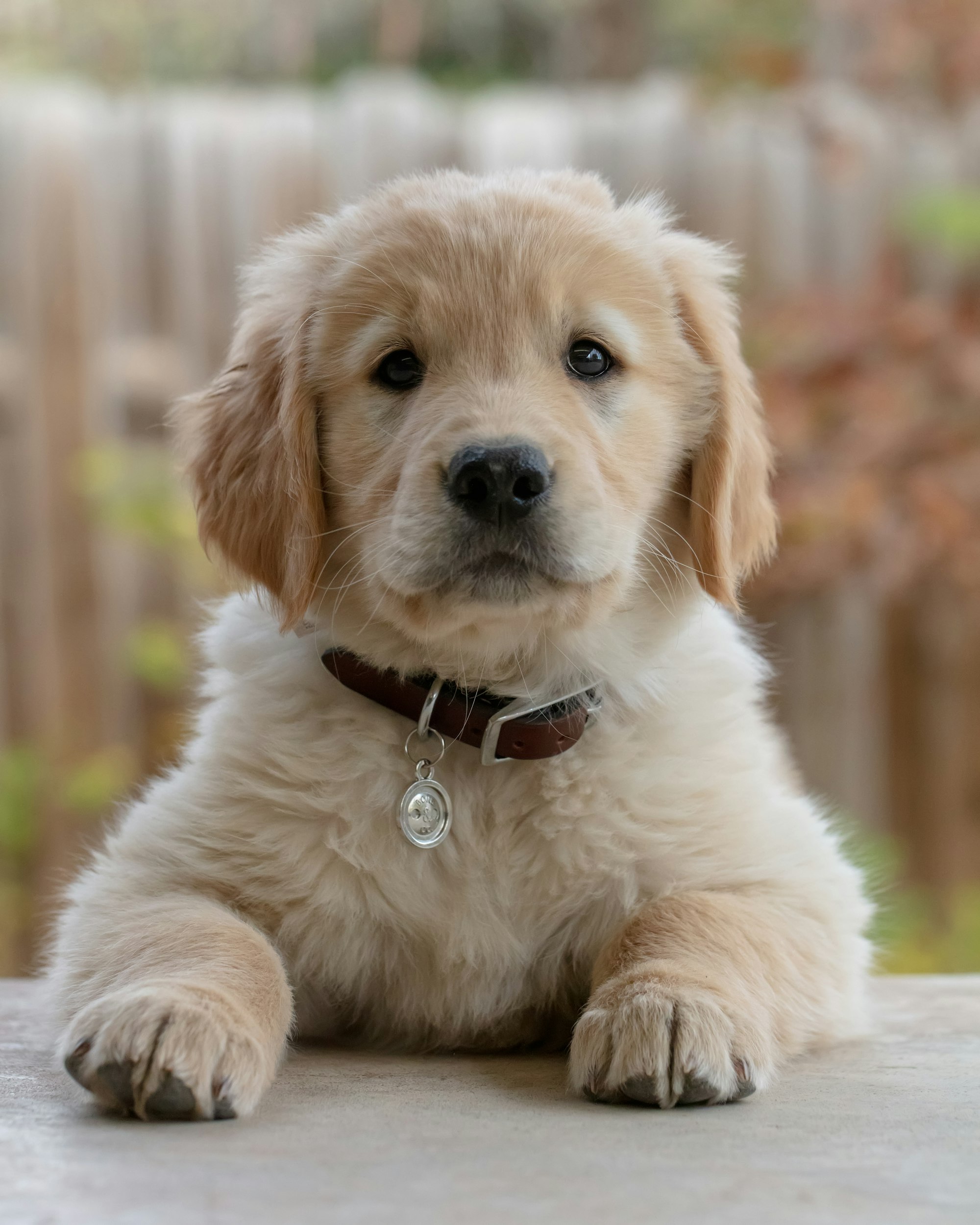
Factors Influencing a Puppy's Water Intake
Factors Influencing a Puppy's Water Intake |
Details |
Age |
Puppies have different water needs depending on their age. Younger puppies may need more water due to their developing bodies. |
Size |
Smaller breeds may require less water compared to larger breeds. The size of the puppy can affect their hydration needs. |
Activity level |
Puppies that are more active or have higher energy levels may require more water to stay hydrated. |
Environmental conditions |
The temperature and humidity in the environment can impact a puppy's water needs. Hotter weather or dry climates may increase their water intake. |
Diet |
The type of food a puppy consumes can influence their water intake. Dry kibble may require more water consumption compared to wet or canned food. |
Health condition |
Certain health conditions may affect a puppy's water intake. Illnesses or medications can increase or decrease their thirst. |
Availability of water |
The accessibility and availability of water can influence a puppy's water intake. If water is readily available, they may consume more. |
These factors influencing a puppy's water intake should be taken into consideration when monitoring and managing a puppy's water intake. It is important to ensure that puppies have access to clean and fresh water at all times to encourage proper hydration. Monitoring their water intake and making adjustments based on their needs can help maintain their overall well-being.
Signs of Dehydration in Puppies
One of the crucial signs of dehydration in puppies is pale gums. Normally, gums should be a healthy shade of pink. If they appear pale or white, it may indicate dehydration. Puppies with dehydration may have a dry and sticky feeling in their mouth. The saliva can be reduced, leading to increased thirst.
Dehydration can cause puppies to become lethargic and lack energy. They may appear weak and less interested in playful activities. A puppy's skin should bounce back immediately when gently pulled. Dehydration can cause the skin to lose its elasticity, resulting in a longer delay for the skin to return to its normal position.
Puppies with dehydration may have sunken or hollow-looking eyes. This can be a clear sign that they are not getting enough fluids. Dehydrated puppies may urinate less frequently or produce very small amounts of urine. The urine may also be more concentrated and appear darker in color.
Excessive panting is another sign of dehydration in puppies. Panting is the body's way of trying to cool down, and when they are dehydrated, puppies may pant more than usual. Dehydration can lead to weakness and wobbliness in puppies. They may have difficulty maintaining their balance and coordination.
It is important to remember that if you notice any signs of dehydration in puppies, immediate action should be taken. Offer them fresh, clean water and contact a veterinarian for further guidance and potential treatment.
How to Check for Dehydration in Puppies?
When it comes to puppies, it's important to be aware of the signs of dehydration. Here are the steps on how to check for dehydration in puppies:
- Check for dry gums. Gently lift your puppy's lip and press your finger against their gums. Healthy gums should be moist and pink. If they feel dry or sticky, it may be a sign of dehydration.
- Observe the skin elasticity. Gently pinch a small amount of skin on the back of your puppy's neck and release it. The skin should quickly return to its original position. If it takes longer than usual or stays tented, it could indicate dehydration.
- Monitor urine output. Keep an eye on your puppy's bathroom habits. If they have not urinated in several hours or if their urine appears dark and concentrated, it may be a sign of dehydration.
- Pay attention to excessive panting. Dogs pant to cool down, but excessive panting can be a sign of overheating and dehydration. If your puppy is panting excessively and seems very thirsty, it's important to check for dehydration.
- Look for sunken eyes. Dehydration can cause the eyes to appear sunken or dry. If your puppy's eyes seem dull or recessed, it may indicate dehydration.
Remember, dehydration can be serious for puppies, so if you notice any signs or are concerned about your puppy's hydration level, it's best to consult a veterinarian for proper guidance and care.
How to Ensure Your Puppy is Drinking Enough Water?
Are you wondering how to ensure your puppy is drinking enough water? Here are some helpful steps to follow:
- Always provide a clean and fresh water source for your puppy. It's important for them to have access to water throughout the day. Make sure to regularly refill the water bowl to keep it clean and full.
- Monitor your puppy's water intake by paying attention to how much they drink daily. While there isn't an exact amount that applies to all puppies, a general guideline is for them to drink about half an ounce to one ounce of water per pound of body weight each day.
- Encourage your puppy to drink water by using a shallow and wide water bowl. Some puppies find it easier to drink from this type of bowl. You can also make the water more enticing by adding a small amount of low sodium chicken broth or wet food.
- Take into account the weather and activity level of your puppy. They may need to drink more water on hot days or after physical activity. Make sure to provide additional water during these times to prevent dehydration.
- If you have any concerns, it's always best to contact your veterinarian. If you notice that your puppy consistently isn't drinking enough water or shows signs of dehydration, such as lethargy, dry gums, or sunken eyes, it's important to consult with your veterinarian for further guidance and evaluation.
Remember that every puppy is unique, and their water intake may vary. By consistently providing fresh water and monitoring their intake, you can help ensure that your puppy stays hydrated and healthy.
Common Mistakes to Avoid When It Comes to Puppy Hydration
When it comes to puppy hydration, there are common mistakes that should be avoided. These mistakes can have negative consequences on their health and well-being. Here are some important things to keep in mind:
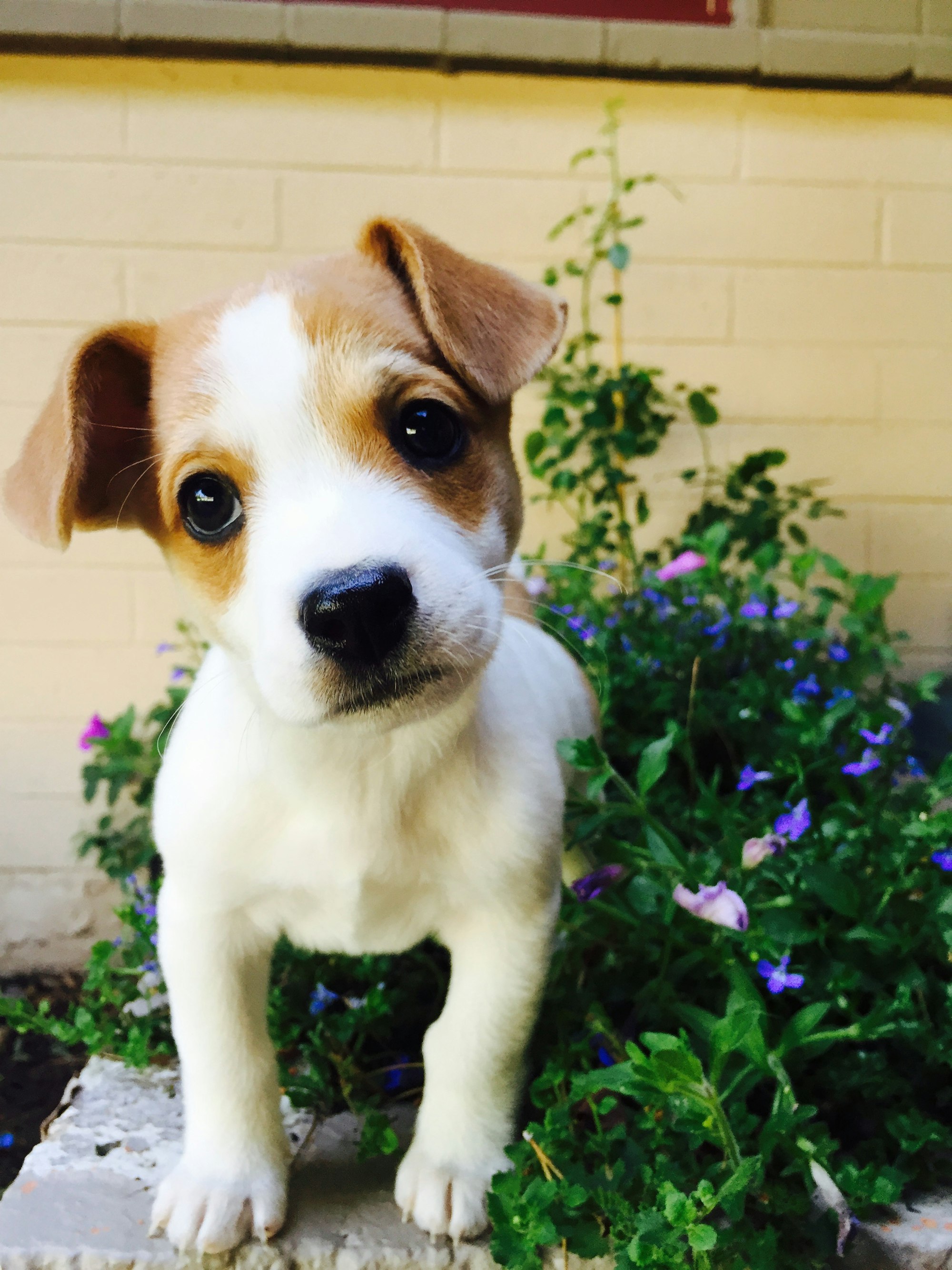
- Not providing fresh water: Puppies, just like adult dogs, need access to fresh water at all times. Make sure to refill their water bowl regularly to ensure they always have clean and fresh water available.
- Using the wrong size water bowl: It's important to use a size-appropriate water bowl for your puppy. Using a bowl that is too small can result in frequent refills and potential dehydration. Choose a bowl that is large enough to hold an adequate amount of water for your puppy's size and breed.
- Not monitoring water intake: While it's essential to provide access to water at all times, it's also important to monitor your puppy's water intake. Some puppies may drink excessively or too quickly, leading to potential health issues such as gastric dilatation-volvulus (bloat). Ensure they have enough water without allowing them to drink excessively.
- Not considering temperature and weather: Puppies are more susceptible to heatstroke and dehydration in hot weather. Make sure to provide them with plenty of fresh water and a cool environment. In colder temperatures, ensure their water bowl doesn't freeze, and replace frozen water with fresh water regularly.
- Not cleaning the water bowl: Bacteria can build up in the water bowl over time, leading to potential health risks for your puppy. It's important to regularly clean and sanitize their water bowl to prevent any contamination.
To ensure your puppy stays hydrated and healthy, avoid these common mistakes and provide them with fresh, clean water in an appropriate-sized bowl. Monitoring their water intake and considering temperature and weather conditions will help keep them hydrated and prevent any health issues.
How to Introduce Water to a Puppy?
Are you wondering how to introduce water to a puppy? Don't worry, we've got you covered! Follow these steps to ensure your furry friend stays hydrated and develops proper drinking habits:
- Start at the right age: Puppies typically begin drinking water when they are around three to four weeks old. Prior to this, they rely on their mother's milk for hydration.
- Choose an appropriate bowl: Opt for a shallow and sturdy bowl that your puppy can easily reach. This will prevent any accidental tipping over of the bowl.
- Place the bowl in a designated area: Set up the water bowl in a quiet and easily accessible spot, making it effortless for your puppy to locate and associate it with drinking.
- Show them the water: Gently dip your finger into the water and let your puppy sniff it. This will help familiarize them with the scent and temperature of the water.
- Encourage with praise: Whenever your puppy displays interest in the water or takes a drink, offer enthusiastic praise. This positive reinforcement will help them associate water with something pleasurable.
- Offer water during mealtime: Once your puppy finishes eating, present them with some water. This will assist them in understanding that drinking water is part of their daily routine.
- Keep the water fresh: Regularly change the water in the bowl to ensure it remains clean and fresh. Puppies are more inclined to drink water that smells and tastes good.
Pro Tip: It's important to be patient during the introduction process. Some puppies may take longer to start drinking water regularly. If your puppy appears uninterested, try gradually adding small amounts of water to their food to acclimate them to the taste and texture.
When to Be Concerned About a Puppy's Water Intake?
- If your puppy is drinking significantly less water than usual, it may be a cause for concern. A sudden decrease in water intake could be a sign of dehydration or an underlying health issue.
- Similarly, if your puppy is drinking excessively more water than usual, it may also indicate an underlying problem. Excessive water intake could be a sign of diabetes, kidney disease, or certain hormonal imbalances.
- If your puppy is experiencing frequent vomiting or diarrhea and is not able to keep water down, it is important to seek veterinary attention. Dehydration can occur rapidly in such cases and should be addressed immediately.
- Monitor your puppy's behavior and energy levels. If your puppy is lethargic, weak, or showing signs of distress along with decreased water intake, it could be a sign of a more serious condition, and veterinary advice should be sought.
- Changes in appetite coupled with decreased water intake should also be a cause for concern. This may indicate an underlying health issue or discomfort that requires attention.
It is important to remember that each puppy is unique, and their water intake may vary based on factors such as age, breed, activity level, and environmental conditions. If you have any concerns about your puppy's water intake, it is always best to consult with a veterinarian for proper evaluation and guidance.
How to Encourage Proper Hydration in Puppies?
Want to ensure your furry friend stays hydrated? Discover the secrets to encouraging proper hydration in puppies. From the importance of clean and fresh water to monitoring water intake and even using water additives for picky drinkers, we've got you covered. Say goodbye to dehydration worries and ensure your puppy's well-being with these helpful tips. Let's dive into how to keep those adorable little ones hydrated and healthy!
1. Provide Clean and Fresh Water
When it comes to providing clean and fresh water for your puppy, there are a few simple steps you can follow:
- Ensure that your puppy always has access to clean and fresh water. Keep their water bowl filled throughout the day and replace the water at least once or twice a day.
- Use a clean water bowl or dish for your puppy's water. Wash it regularly with soap and water to prevent any buildup of bacteria and keep it hygienic.
- Make sure to keep the water bowl in a clean and safe area. Avoid placing it near their food bowl or in an area where it can easily get contaminated.
- Monitor the temperature of the water. Puppies may prefer room temperature water, so avoid giving them extremely cold or hot water.
- Consider using a water filtration system or provide bottled water if your tap water has a high level of impurities or a strong taste that your puppy may not like.
Remember, providing clean and fresh water is essential for your puppy's overall health and well-being. It can help prevent dehydration and ensure that they stay properly hydrated throughout the day. By following these steps, you can ensure that your puppy always has access to clean and safe drinking water.
Fun Fact: Puppies have higher water requirements compared to adult dogs. They need approximately 1/2 to 1 ounce of water per pound of body weight per day to stay properly hydrated.
2. Monitor Water Intake
Monitoring your puppy's water intake is crucial to ensure they stay properly hydrated. Here are some important points to consider when it comes to monitor their water intake:
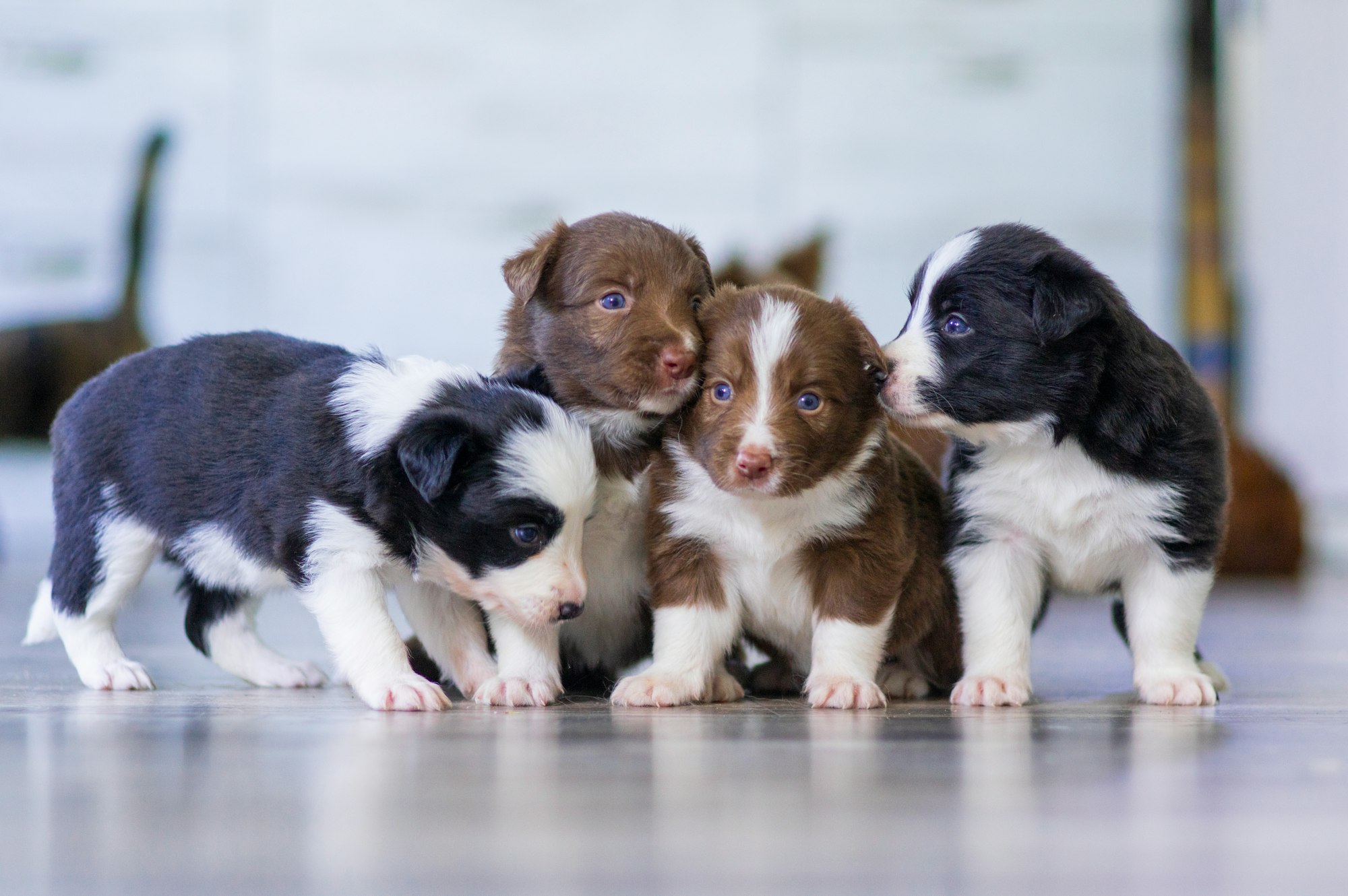
- Observe frequency: Keep an eye on how often your puppy is drinking water throughout the day. Ideally, they should be taking small sips multiple times a day rather than gulping down large amounts in one go.
- Check water level: Regularly check the water bowl to see how much water your puppy is consuming. This will give you an idea of their daily intake and whether it is sufficient for their size and activity level.
- Consider factors: Take into account various factors that may affect their water intake, such as temperature, exercise, and diet. During hot weather or after physical activity, your puppy may require more water to stay hydrated.
- Pee breaks: Monitor how often your puppy needs to go for bathroom breaks. If they are urinating frequently and producing clear urine, it indicates they are adequately hydrated.
- Consult a vet: If you notice any significant changes in your puppy's water intake, such as excessive drinking or a sudden decrease, it is advisable to consult a veterinarian. It could be a sign of an underlying health issue.
Monitoring your puppy's water intake is crucial to ensure they stay properly hydrated and healthy. By observing their drinking habits, considering various factors, and seeking professional advice when necessary, you can ensure that your furry friend is receiving adequate hydration.
3. Offer Wet Food
When it comes to ensuring proper hydration for puppies, it is beneficial to offer wet food. Wet food contains a significant amount of moisture, which can contribute to a puppy's overall water intake. Here are some reasons why offering wet food can be beneficial:
1. Increased hydration: Wet food has a high water content, typically around 70-80%, which helps to keep puppies hydrated. By offering wet food in their diet, you are providing them with an additional source of water.
2. Enhanced palatability: Puppies are often more attracted to the aroma and taste of wet food compared to dry kibble. This can encourage them to eat more and, in turn, consume more water.
3. Added nutrients: Wet food is often formulated to be nutritionally balanced, providing puppies with essential vitamins and minerals. Offering wet food can be a good way to incorporate additional nutrients into their diet while also ensuring they stay hydrated.
4. Soft texture: Wet food has a softer texture, making it easier for puppies to chew and digest. This can be particularly beneficial for younger puppies who are still developing their teeth and jaw strength.
It is important to note that wet food should be offered in moderation and as part of a balanced diet. It should not replace access to fresh and clean water, which should always be available for puppies to drink throughout the day.
Offering wet food to puppies has long been recognized as one way to help ensure their proper hydration. With its high water content and enhanced palatability, wet food provides both hydration and essential nutrients for growing puppies. Veterinarians have often recommended incorporating wet food into a puppy's diet to help meet their hydration needs and support overall health.
It's important to remember that wet food should be part of a well-rounded diet that includes all the necessary nutrients from other food sources. By offering wet food along with fresh water, puppy owners can help ensure their furry friends stay properly hydrated and nourished.
4. Use Water Additives for Picky Drinkers
When it comes to encouraging proper hydration in puppies, one effective strategy is to use water additives for picky drinkers.
- Introduce flavored water: Some puppies may be more enticed to drink water if it has a pleasant taste. You can try adding a water additive that is specifically designed to enhance the taste of water for picky drinkers.
- Opt for electrolyte supplements: Electrolytes are essential for maintaining proper hydration and bodily functions. Water additives that contain electrolytes can be beneficial for picky drinkers who may need an extra boost in their hydration levels.
- Consider natural options: There are natural water additives available that utilize ingredients like chicken or beef broth flavoring to make water more appealing to puppies. These additives can provide a flavorful incentive for picky drinkers to consume more water.
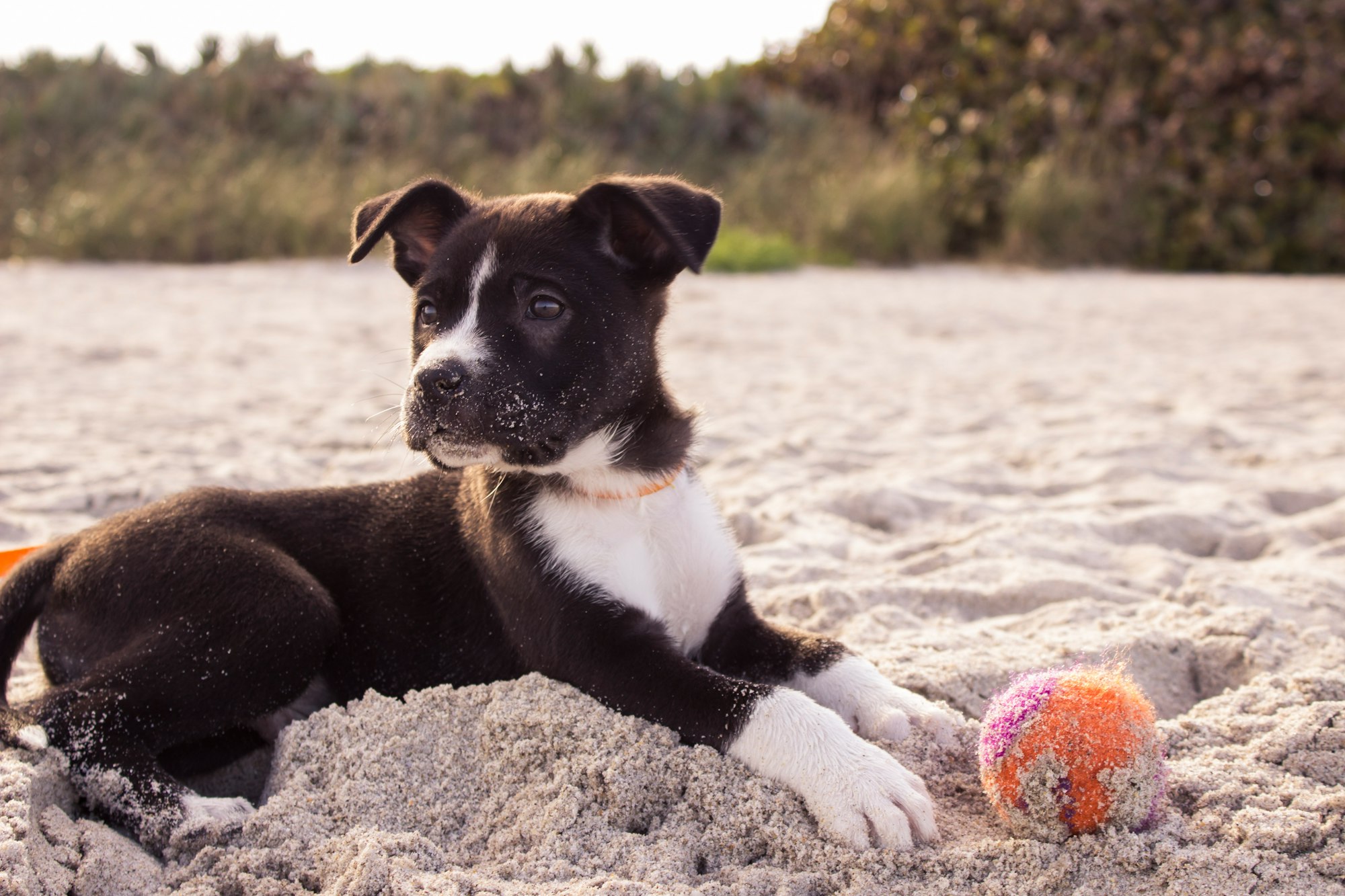
It's important to note that while using water additives for picky drinkers can be helpful in encouraging them to consume more water, it's crucial to use them in moderation and according to the instructions provided. You must ensure that the additive used is safe for puppies and does not contain any harmful ingredients.
Remember, providing clean and fresh water, monitoring water intake, offering wet food, and using water additives for picky drinkers are all essential strategies in ensuring your puppy stays properly hydrated.
Frequently Asked Questions
How much water should a puppy drink during potty training?
During potty training, puppies can drink freely throughout the day. However, their water bowl should be removed around two to three hours before bedtime to reduce the need for bathroom breaks overnight.
How can I implement a puppy water schedule?
To implement a puppy water schedule, you can remove the water bowl at the same time each night, typically around two to three hours before bedtime. This routine helps reduce the need for bathroom breaks during the night.
What are the key elements to consider when establishing a puppy water schedule?
When establishing a puppy water schedule, you need to consider factors such as the puppy's age, size, exercise level, and weather conditions. These elements influence a puppy's water needs and help ensure their overall well-being.
When should you give puppies water?
Puppies can start drinking water at around 3-4 weeks of age when they switch from milk to solid food. It is also important to keep puppies hydrated even if they cannot go for walks due to weather conditions.
How can I help my puppy drink enough water?
If your puppy is not drinking enough water, you can try keeping their bowl clean and the water fresh, considering the bowl's position, rewarding them when they drink, and using ice cubes or flavored water to entice them. These measures can help increase their water intake.
What are the symptoms of dehydration in puppies?
Symptoms of dehydration in puppies include panting, lethargy, loss of appetite, dry nose, and thick saliva. Another way to check is by performing the skin tent test, which involves gently pulling the skin on the back of the puppy's neck – if it does not quickly return to normal, it may indicate dehydration.
